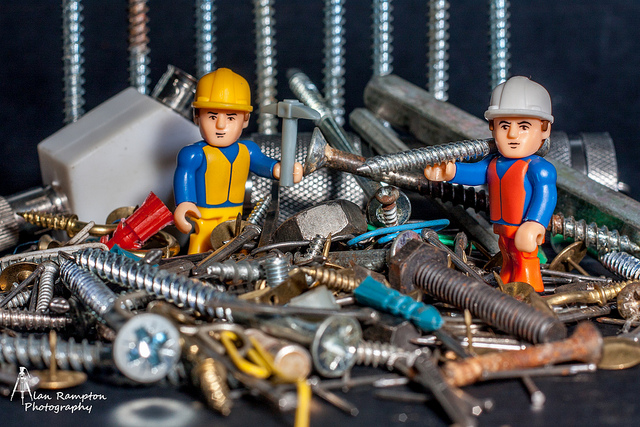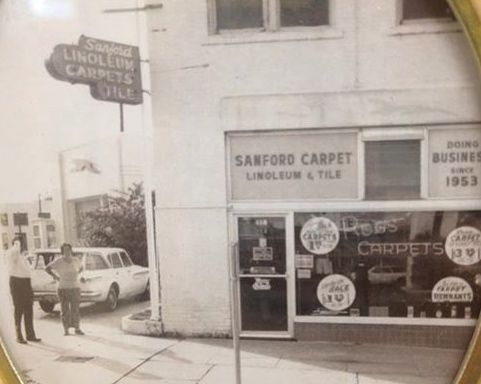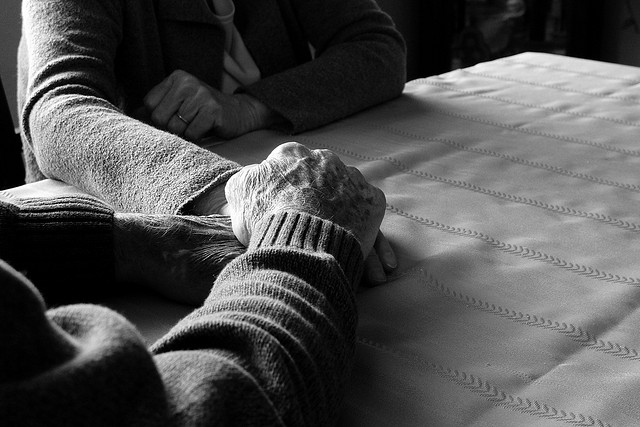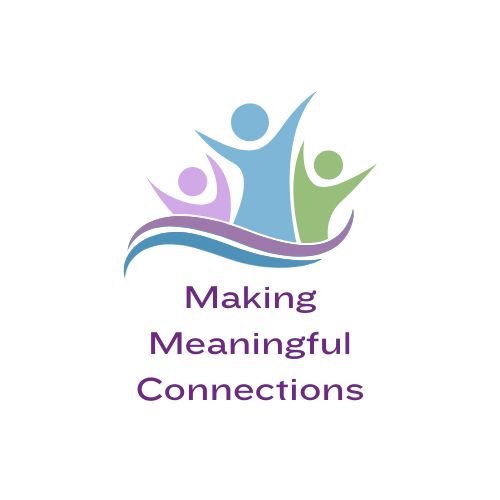
by Barb Abramson | Mar 18, 2015 |
Uh Oh, I just “caught” myself playing another game on the computer. It’s a jigsaw puzzle program that I use to inspire my creativity. At least that is what I tell myself. If I get stuck on a project, I slip over and put in just a few pieces. Ok, sometimes more than a few pieces.
But what I find happens when I step away too long, is that my project, writing and my focus slips behind. And that got me thinking about what else is lagging. What other things do I have on my to do list that I am not doing?
I’m not talking about the dishes or laundry. I’m talking about the commitments, both personal and professional I made that I know will improve my life. Exercise for one. Keeping that promise to myself to walk 20 minutes every day plus some stretching and toning exercises in my pursuit to get fit.
Organization is another one of my challenges. I have a stack of business cards to enter into my computer. Then there are emails to respond to and phone calls to keep track of and the calendars! Data entry is not my favorite task, but that aside, which program do I use. I have tried so many different ones that haven’t been the one with the bells and whistles I need. I’m not that complicated, but some of the programs or apps I have tried have been, and it overwhelms me.
But my biggest challenge is working from home. I look up and see a million things that need to be done from housework to home projects to the weeds creeping into the garden and I am distracted and diving into that puzzle once again.
It’s time for a new plan. One, that will keep me organized and productive. Because frankly, the plan I have (or really don’t have) is akin to being on a hamster wheel – I’m moving but getting nowhere.
Here are the 3 things that helped me get back on track.
Get An Accountability Partner- Find someone to hold you accountable, but make it a two-way street. If you can help them with something too, it becomes a win-win situation. It can be a task list or chart that you email daily or weekly. They don’t have to live next door. But if they do and they have the same goal you do (exercise for example) you might be able to meet to accomplish the goal together. This can work for any kind of activity – it’s just a matter of checking in and sharing your progress
Ask Others What Works For Them – Instead of trying out every new thing that comes along, or trying to evaluate all the options, ask your friends and colleagues what has worked for them and why. I finally found the perfect program to manage my contacts and projects with ease, simply by checking in with busy people who rely on products like these every day. It helped narrow down the choices to just a few to try out and I don’t have the overwhelm of too many choices on the menu anymore.
Work In An Environment Conducive To Getting Things Done – My home may be my castle, but it is not the best place for me to get work done that is not home related. While many people can work effectively from home, I know that I need a different scenario. Some people may find that inspiration in a busy coffee shop, others might seek out a co-op workspace or a library. I ended up joining a business club that has general as well as private work areas depending on what my needs are for the day. What matters is finding a place that suits your own style that allows you to be inspired, productive and feel good in the process.
Our lives get into a routine that can be exciting or feel boring and we often have to mix it up a bit. I’m not getting rid of my computer jigsaw puzzle just yet, but I don’t use it as a go-to excuse when I’m stuck. Instead, I look for inspiration with and from others and, by putting myself in a place where more inspiration happens.
Photo: Flickr

by Barb Abramson | Mar 16, 2015 |
I am sitting in my favorite chair, listening to the birds chirping madly away in their morning reverie and thinking of my dad. How he loved the birds that played in his back yard. He constructed feeders for them and would point out the cardinals and blue jays that would swoop in to eat, competing with the squirrels that thought the food was theirs.
I have so many great memories of times with my dad. He loved puzzles, road trips, cracking jokes, silly puns, and gardening. I love all those things too and truly wish I had spent more time with him in those activities.
Moving my parents to an Assisted Living Facility was life changing for both of them. The backyard birds, the gardening, their car, and many of the things dad loved went away. I left the bird feeders up at their place, but now wish I had brought them to my house.
When someone you love is ill, as my dad was with Alzheimer’s, you often forget about maximizing the time together. It’s easy to get caught up in caring for them while you are still running around maintaining your own schedule and busy life.
If I could spend some more time with my dad, I would carefully maximize every moment, even if it meant just hanging out together enjoying each other’s company.
Here are 3 things I wish I’d done to make most of my time with my dad.
Preserve the Memories
Journal their stories, or record an audio or video version. I wish I had used a tape or video recorder to capture his memories. I can’t pick up the phone to call him anymore to ask about a relative or event I am fuzzy on, or one I heard him tell me in my much younger days.
Create Meaningful Memories While You Can
Take the time to take that road trip or whatever activity is important to them. We get so caught up on our lives, with work and taking care of our home and running our own kids around. My dad wanted me to try out for Wheel of Fortune with him and I was too busy. What a memory that would have been!
Learn from Him
Dad love to woodwork and I have a charming cabinet he made. He was a bit of a handyman who also taught me how to hang wallpaper, change a tire and the oil in my car. But he always wanted me to learn to play Bridge, his favorite card game. He would travel to tournaments around Florida and sometimes to other states. I wish now I had learned to play from him and with him. We could have combined that hobby and a road trip and gone to a tournament together!
I realize now how precious my memories are. I think that is why I love to connect seniors to their memories.
My son and daughter-in law will be home in a few weeks. They along with my husband are big bowling fanatics and I’m not. But I decided to go with them to watch, laugh, take pictures and make some memories we can all cherish.
Previously published on The Good Men Project
Photo: Flickr

by Barb Abramson | Feb 18, 2015
I haven’t written a blog post in a while. I haven’t felt focused enough to settle down and finish the several posts I have started, and have been bouncing around from one to the next, not really accomplishing much.
My good friend and accountability partner, Doug Wagner, President of Sunwapta Solutions, suggested I write something light. He recommended not to try to go in too many directions; it would be like squeezing an uncut orange, the juices going everywhere.
In truth, I haven’t felt the juices flowing enough to squeeze out a full post, much less the rest of one. Instead, my mindset has been that of a stale, dried-up orange.
Then I thought about business. How we sometimes lose our focus and spin our wheels, never feeling accomplished, and left with a lingering dissatisfaction about where we are going.
My acupuncturist calls it rabbit energy – jumping from one thing to another — which may feel productive as you are “touching” a lot of points in your business, but you probably aren’t doing any of them well. This is the mode in which most mistakes happen.
While she was expertly poking needles into my elbows, hands, forehead and feet, (no it doesn’t hurt) we talked about what calm, smooth energy would feel like and decided on an ice skater gliding effortlessly from task to task.
In order to accomplish moving from frantic to smooth, I knew I had to change my mindset on how I approached my writing, work, and, if I am honest with myself, life.
Here are 3 Ways to Change Your Energy and Get More Done
Take a Stab at it – You Can Adjust if Necessary
Dixie Gillaspie, my very wise business coach and editor suggested to write sloppy, then go back and edit and clean it up later. Do a brain dump and get it on the paper. This is true with ideas for marketing and sales plans too, and the theory behind brainstorming sessions. All ideas are put forth. Often what results is a springboard effect with one idea bouncing off another. No wait, one idea gliding after another. Ahh, much better!
Eliminate Distractions
I can’t write when the TV is on, but music playing in the background is ok. Phone calls throw off my train of thought and social media, especially Facebook is a tempting siren. Know what works for you and what doesn’t and commit to a structured time block focussing on just one thing. Instead of trying to jump around and handle everything at once, pick one task and set a timer to work on it so that you can feel a sense of accomplishment. If you get in the groove and have the time to extend your focus, then do it!
Find a Human Trampoline
No, don’t jump on someone, but have a creative partner to bounce ideas off to get the ball (or orange) rolling. You may want to find an accountability partner and set goals and timelines. As Doug and I were discussing our orange analogy, we both ended up with something to show for it. You can read Doug’s creative post here.
Hey look, I just wrote a blog post! Orange ya glad I did! Yeah, I know – you’re probably groaning at the bad pun, but I’m suddenly smiling, feeling juicy and energized. Time to tackle those writing projects, one at a time!
Photo Credits: Flickr (Pietro Izzo,

by Barb Abramson | Jan 7, 2015 |
Have you heard about the guy that wanted a red Ferrari?
Story goes, it represented a symbol of success, of working hard and finally making it in the business world. He could visualize it parked in his driveway, for all the neighbors to drool over and turn green with envy when they drove by.
The red Ferrari would mean he had achieved a status that set him apart from others. It told the world that was not a failure.
He had to have that red Ferrari.
This guy worked hard. He worked days and often worked nights. He worked weekends and holidays, all in pursuit of his goal. He was exhausted, but consumed.
His wife and children rarely saw him. Family time that included Dad was almost non-existent. He was gone before they were awake and often came home after everyone else was in bed.
He was driven. Driven to drive that damn red Ferrari.
Not only would his neighbors be envious, so would his friends. They would all see that red Ferrari in the driveway and they would finally understand why he had worked so hard. His family would know that he did it all for them.
The guy was so tired, but he knew he would never accomplish his goals and his dreams without working as hard as he did. He was stressed, but so determined to drive that sleek red machine that was his symbol of success.
The thing is, his kids didn’t care about the car. All they wanted was their dad to throw the ball with them, to attend their soccer games and school play and to just hang out like their friends’ dads did. His wife didn’t care about the car either. She also was tired of raising the kids alone, of not going out as a couple like they used to, or as a family.
But there weren’t enough hours in the week for those “leisurely” activities. He barely slept, because his mind was always racing with all he had to do. Stress was his middle name.
One day, he found himself in a most unusual situation. His afternoon client cancelled and he had no one else scheduled. His reports were filed and his boss told him to go home.
Imagine his family’s response when he showed up. He played with his kids, ate dinner with his family, laughed and relaxed and had the best night’s sleep in a long time. The next day, he awoke rested, another feeling he had forgotten about.
He was so refreshed he discovered how much work he got done the following day. With a clear head, his focus was on point and he was amazed at how much he had accomplished.
The following week, he purposely scheduled an afternoon off and enjoyed more family time and again, was incredibly focused and productive at work. By the following week, he added a day on the weekend. He discovered his productivity at work increased 25% although he was working less. His family life increased even more.
In time, the guy made an important discovery. As he learned to take time for himself and his family, his ability to balance his life enabled him to achieve more – more money, more success, more quality family time, more rest, more focus and most important – he could finally afford that red Ferrari.
And suddenly, he didn’t want it any more!
Here are 3 things this guy wants you to know about life and work balance!
Success Isn’t a Thing
You will never feel fulfilled if you gauge your success by an object – the fanciest car or the biggest house. Yes, they represent wealth, but not necessarily success.
Giving Up Family For Business is a Lose/Lose Situation
You will never get back the time you could have spent with people that you love. Or have time to develop a relationship. You lose and they lose
Without Balance in Your Life, Your Health Will Suffer
The stress will never be worth it –a never have enough syndrome creates stress that can affect not only your sleep but your quality of life.
Having things does not equate to having a life. Money will purchase objects, but it won’t purchase the feeling of being fulfilled. That comes from within and from having others to share our lives with and create memories with. You can’t recreate what you miss out on.
Photo: Flickr
Previously published on TheGoodMenProject.com

by Barb Abramson | Dec 30, 2014
Several years ago, after coming to the painful realization that they could not take care of themselves any longer, I moved my parents to an assisted living facility.
I did my best to keep them in their home, hiring caregivers to come by daily for a few hours each day, which was all I could afford. I began cooking their meals and helping out as much as I could, grateful I already had power of attorney for both of them so I could pay their bills and handle other details of their lives. It was exhausting, even with help. Their expenses were greater than their income from pensions and social security. Dad was diagnosed with Alzheimer’s. Mom had diabetes, congestive heart failure and was on oxygen. Life as they knew it had to change.
It took some time to adjust to the ALF, but I knew it was where they needed to be. Dad was eventually moved over to memory care as his disease progressed. I learned a lot about memories in the process which helped me to help others who are caring for people who have dementia.
They passed away within three months of each other. Now, nearly four years later, I have begun the process of sorting through all the extra things that ended up at my home after theirs was sold.
Clothes that would not fit in their much-smaller apartment now crowd my closets. Boxes of books and memories I wasn’t ready to explore or let go of still line the inside walls of my garage. The door to my back bedroom is kept closed to hide additional boxes stored there. More of their clothes are strewn on the hide-a-bed couch that used to accommodate guests before my parent’s surplus possessions overtook the comfy cushions
I finally reached the point of being ready to sift through some of the piles. Grief defies all things rational and rendered me unable to deal with the their things. It was painful to go through them, and yet I was grateful to have them.
I started with clothes that were on the couch; Dad’s suits, Mom’s dresses, and some various sweaters, blouses and shirts. Some of them were stained, from hanging in the closet too long, as well as from wear.
Looking at each piece of clothing was a journey down memory lane. A favorite dress of Mom’s, Dad’s wild floral tie I made him in the 7th grade because I am Jewish and didn’t want to make the class Christmas stocking.
Then I noticed the white paper peeking out from an inside pocket on one of Dad’s suit jackets. I pulled it out and unfolded the two pages that were stapled together. In my hands was a printout of Mapquest directions to a church in a neighboring city dated May, 2006. A friend of Dad’s had passed away. He had printed out directions to the funeral. In the pocket on the opposite side was the program from the funeral.
I began checking each item of clothing for hidden treasures. The next suit yielded another surprise. A spoof on a song that I grew up with – My Grandfather’s Clock, turned into My Grandfather’s Kit – written for my son Joel when he was a baby. Dad had put together an assortment of baby products and toys and written a little diddy to go with it. My dad the creative performer! Makes me smile thinking about it.
A man’s suit coat is fun to rummage through — there are so many pockets. Outside ones with flaps and more pockets nestled away on the inside.
As I continued exploring I found a candy wrapper, it’s contents long gone. He used to keep them in his pocket during Shabbat services in case he or mom had a scratchy throat or a cough. Speaking of services, two tickets for the High Holiday (Rosh Hashanah and Yom Kippur) the Jewish Holy Days. They are listed for the year 5767 in the Hebrew calendar, that would be 2006, more than eight years ago. Two finds from 2006. It must have been the last time he wore suits.
Another wrapper. Antacid tablets. I see any kind of antacid tablets today and still think of him. Dad had what he called a nervous stomach. I think it was just heartburn. He had a penchant for foods like garlic and onions.
A silver paper clip attached to a very young picture of one of my cousins. It is dated April, 1958, the year before I was born. Odd this was in his pocket. I wonder why he carried it with him.
A pen with the real estate company he worked for so many years ago printed on it. He sold us our first house and gifted us back his commission. A note in the same pocket (written with the pen?) to remember call the library about a book he had on reserve.
I would have loved to sit with Dad on the couch, chatting about the treasures I found and maybe pulling a story or two from him as we laughed about the paper clip and antacid wrapper. I wonder what the book was that he’d reserved, and if he ever read it.
It may seem silly to some, but for me, every memory I discovered in my father’s pockets made me smile and then miss him all the more.
You may also want to read: How Losing My Father to Alzheimer’s Helped Me Find Joy for Others
Photo: Flickr
Previously published on TheGoodMenProject.com

by Barb Abramson | Dec 9, 2014
My husband and I recently stopped for dinner at a local eatery that had gluten-free options. The chain is a step-down of a national chain, but not quite fast food. You order at the counter, are given a number for your table and servers bring your food to you.
The food is delivered to your table as available, so if your dining mate’s food is ready first, it is brought to the table and yours will come when it is prepared.
It’s a fairly easy system. If you are seated near the open kitchen area you can see your food being prepared and hear the banter of the staff: cooks, servers, and managers, as they prep, stage, and deliver your food.
On this particular evening, my food was brought to me and I immediately noticed it was not what I had ordered. As I looked up to let the server know, what I saw was her back as she had literally placed the food in front of me then headed off in another direction without as much as “here you go.”
Being gluten-free often means I get my food after everyone else as it has to be prepared separately and I am OK with that. But if it is not prepared correctly or is the wrong order, it adds to the wait.
But being gluten-free isn’t the point.
What’s Up?
I finally flagged down our server and she approached our table with “What’s Up?’ and an irritated attitude that reached us before she did.
I explained my order was incorrect and without a word of apology or even acknowledgement, it was snatched away and we heard some not-so-pleasant conversation as she berated the cooks because “they” had made the wrong dish. I noticed the manager was within earshot, saw him frown and turn away.
One would hope that a botched order would get high-level attention. Not the case in this case. We watched while several other customers who came in after my order was returned, got their food, then finally we heard the cook call out my food order. Again, it was gluten free so there had been an added wait.
Then it went up in the window. Our waitress walked by it three times before I politely and yes, I mean politely, asked if it was ready. I didn’t let her know I knew it was. Again, no response as she wheeled around, picked it up, and in one sweeping motion as she walked by our table, delivered the food without a word of acknowledgement, or apology for it being wrong the first time, or even eye contact.
None of the employees seemed to be having a good night. I wasn’t exactly having a blast either. Everyone in the place seemed to be irritated with each other and not once did a manager stop by to say hello, check on customers, or, since he was aware that we’d had a wrong order, offer an apology.
What I did get was a 5 Point Checklist for making sure MY customers don’t have a similar experience.
#1: You can’t afford a negative attitude.
I have no idea why our server was in a bad mood. Something could have happened at home. She might really hate her job. But what she conveyed to the customers of the restaurant was it was an inconvenience to take care of them and she didn’t really care to do so.
Had this been an isolated incident that just involved her, I might have been able to overlook it.
#2: Bickering among employees leads to negative attitudes.
Employees who interact negatively with each other in front of customers is a huge turnoff. It’s awkward and embarrassing. It shows a lack of respect for each other, the owners of the company and themselves.
#3: Lack of empathy tells the customer that they don’t matter to you.
As a customer, I want to be heard. I want my order to be heard correctly and if there is a problem, I want to be acknowledged and know that someone cares to make it right. I want to feel as though I matter.
#4: Leadership has to set the tone, and step in to correct the problem.
A manager, who does not step in to help remedy a situation and joins in with his bickering employees, shows an incredible lack of leadership. He or she fosters the negative environment and the message customers get is that their needs are less important than the issues the staff is arguing about in front of them.
#5: There is no substitute for value.
No matter how great the food is, or the cost, poor service and lack of caring for the customers will negate any benefits in a heartbeat.
Whether you are a restaurant, retail store or any other business that deals with the public, unhappy employees will kill the profitability of a business. Customers don’t need a lot of reasons to take their dollars elsewhere. Loyalty doesn’t always lead the way or have the weight it used to, especially when there are so many other companies vying for the customer’s business.
Creating Happy Customers
It’s important to recognize that, while most bad experiences aren’t this obvious, not following this 5 Point Checklist affects the customer relationship even in little ways.
So if you have a business, as my husband and I both do, I hope this checklist also helps you create happier customers, and happier team members. Especially if you are one of the team!
Previously posted on The Good Men Project and Manifast Now
Photo: Flickr

by Barb Abramson | Dec 4, 2014
I wake up most days alone. Not because I am single. I am in fact married. And not because I sleep in another room. I wake up alone because my workaholic husband has gone to work long before the sun is up.
When he gets home, he says hello to the refrigerator before he greets me. Most likely he didn’t eat breakfast or lunch.
He says has to leave early to prep for the day. On the weekends, he has to prep for the next day or the week. He writes and then rewrites the same notes over and over. Yes, he is a little OCD.
His reasoning runs along the lines that as a business owner, no one will care as much as he does. If he doesn’t make the sacrifices, and work early to late six days per week and sometimes seven, then the business might fail.
What he doesn’t get is that what is failing is his health in more ways than one.
His legs ache and he often wakes up with leg cramps. His back aches and he never quite stands up straight. His mind aches because he doesn’t have an off button. He will talk about work at any given moment he is awake. Sometimes I wonder when the business is finally gone, will we have anything to talk about.
He has a nervous cough that surfaces when he is worried about a job. I always know when he is nearby because of that darn cough. I can hide from him in the grocery store, but he can’t hide from me! He doesn’t go to the doctor unless it is an emergency. That would mean taking time off from the JOB. Eating right is not on his radar either
One night a week he does take a break. It’s his bowling night. I am excited for him because he gets to do something fun. “Good luck and good bowling” I cheer as he drags his tired body out the door.
His bowling friends are all retired. They bowl during the week. Some play tennis too. And go on cruises often. I mean very often. They send me notes on FB and emails asking me to talk to him about taking it easy at work. At least on bowling day. Thanks guys!
How do I get Mr. Workaholic to work a little less? The funny thing is he tried once. He retired his parents and tried to walk away from the business. But eight months later, he opened up again and he was off and running.
The only way he gets a break is if I book us to go somewhere. He protests. He even backs out on occasion. He calls the business everyday, several times a day to talk to the staff. He can’t unhook for long.
The worst part is when he gets back. Actually on the way back. He kicks right back into work mode and is incredibly stressed about catching up. He doesn’t sleep well that first night home and is up reviewing the job, and heading in (of course early) to get started.
My biggest fear is that when he finally does retire, he will be too physically worn down to enjoy the rest of his life. I hear stories all the time about men like him who reach that pinnacle and don’t have a lot of time left. I don’t want to put that out to the Universe – so I try not to let his stress become my stress.
The good news is he doesn’t drink or smoke. His work is physical, so he gets exercise in his own way, but many men who are workaholics with office jobs don’t.
His employees leave their jobs behind when they clock out, but for this entrepreneur who is driven to provide for his family, (put food on the table, mortgage payment, car payment, children’s college tuition, etc). it is slowly but surely wearing him down.
I’m booking a 5-day cruise for us. I know he will be stressed on the way back. But at least he won’t be able to call the business for a few days!
Previously published on Talking About Men’s Health
Photo: Flickr

by Barb Abramson | Nov 20, 2014
I used to work for a media company that was divided into several autonomous departments, each overseen by a mid-level manager who reported to the division manager. We operated pretty independently of each other and were in essence, our own little company. It was sort of like being in a franchise, except my group handled products, another group finance, a third group shipping.
That conglomerate was sold and our division formed its own company and we were a compact small business under one boss who oversaw all the worker bees who handled products, finance and shipping.
In both cases, our employee workday looked something like this:
Clock In – Work –Work -Break -Work –Lunch
Work – Work – Break – Work –Clock Out
Next day, Wash, Rinse, Repeat
The daily grind for us was just a means to an end. It was a job
Sound familiar?
The Boring Routine
Week in and week out employees trudge to their cubicles, sit at their desks and accomplish tasks assigned to them. Using the same scenario but a different job, employees will also show up at their retail shop, or the service-oriented installation company or business office for their filing clerk duties. You get the picture.
While the job title may change, what all these employees have in common is they are unmotivated. The relationship with their co-workers resembles surface camaraderie. However, they all share the same trait – they watch the clock on its slow journey to the end of the workday and their release from job hell.
For managers and other corporate higher-up-the chain bosses, who view their workforce as unengaged -“doing just what it takes to get by employees” – you are getting back what you are fostering in your staff –- the bare minimum.
We talk about teamwork, but do we really have a team?
What is a Team?
A team is a group of people that come together to achieve a common goal.
When you look out at your pool of employees, do you see a team? A group of people by definition is not a team. There must be a purpose – a reason for them to come together and it is more than just working in the same building.
A team is created. A team is inspired. A team is invested in. A team is led.
As a leader, understanding who is on your team is essential to its success. What are the strengths and weaknesses of each team member? Delegating tasks based on those skills creates an environment of interaction and flow.
Investing in your team on a more personal level also strengthens the team. This doesn’t mean you have to become best friends with your staff. But showing that you care about who they are as much as what they do for you creates a relationship that fosters trust.
People need to feel connected to other people at work, including both coworkers and their boss. Not feeling connected is actually a prime reason for job dissatisfaction.
Team members who can relate to each other on a variety of levels enjoy interacting and working together to solve problems and create opportunities.
Engaging a Team
How do you foster a team environment in the workplace, especially if there has not been one in place before?
Create a roundtable environment and ask your team to share what matters to them in the workplace and outside of work as well. But don’t just play observer. Join in with your visions as well. Engaging and interacting with each other can foster a creative process for business development and problem solving. You many want to have session like this on a routine basis to further the inter-workings of the team. If someone new joins the team, be sure to give him or her the opportunity to get up to speed and acclimated into what is already comfortable for everyone else.
Just like a woven fabric is stronger than individual threads, a well-designed team becomes a support system for the company and each other.
Originally appeared on blog.manifast.com
Flickr Photo Credit:
Sean MacEntee

by Barb Abramson | Nov 16, 2014
I majored in communications in college and worked for 12 years in the media industry until my job was relocated to a different state. And while I was offered the opportunity to move across the country, several factors held me back and they all had to do with family.
My parents and my husband’s parents both lived within 15 minutes of us. Our son had the benefit of growing up with both sets of grandparents nearby. My husband and I had very special relationships with our own grandparents and wanted that for our son. Family closeness both in relationship and proximity was important to us.
Then there was the family business. My husband ‘s parents opened a flooring company in 1953. His father was one of five children who all had at one time, a flooring business. I think it was in their blood. My husband helped his dad during the summers while he was in high school and eventually worked there full time. He had gone to college to be a P.E. teacher, but when his father fell ill, he put his family first.
When we were engaged, his dad sat me down to ask me what my intentions were for the business. After all he stressed, all the spouses of his siblings worked in their stores. “Oh no!” I countered. “I have my own job, my own career.” Not for me. Besides I didn’t know anything about running a business. And I happily went about my career.
When my company relocated, I toyed with consulting for a couple of years. At the same time, my husband wanted to retire his parents and asked for my help. I had showed up at the store now and then over the years and knew a little about flooring. I couldn’t help it. My husband lived and breathed it and he and his parents talked about every job, every day. He would spend the day with them, come home and they would talk on the phone about the next jobs on the schedule.
So when he asked me to help him, I first refused. Then I relented and agreed to one year, which turned into two and then five and suddenly it was nearly 20. I have to admit, I am proud of what I have accomplished with our business as I learned to be an entrepreneur and run a successful “Mom & Pop” shop.
Working with your family can be extremely rewarding. There is a deep sense of accomplishment that you can share with the ones you love. They get you. You get them. There will never be a lack of conversation at the dinner table. You are part of a legacy and never have to worry about the nepotism rule. In fact, you can groom you children right into the family business.
On the flip side, working with your family can be extremely stressful. It can be so much a part of your life that relationships between parents, spouses, children and siblings can suffer. There are days I want to run from the room screaming!
It is really important to find a balance so that the business and the family both win.
Here are the 5 Ways Not To Lose Your Family to the Family Business
Leave It At The Office
Employees are often told to leave their personal lives at home. Family-run business owners should leave their business life at the office. Your friends and other family members who don’t work there may not want to hear “shop talk” every time they are around you. You may also be more obsessed than other family members. Waking up and discussing business first thing can be a turnoff!
Defined Roles At The Office May Not Apply At Home
Are you the President, CEO, Chairman of the Board, Big Dog on Campus? You may be at the top of the food chain at the office, but that doesn’t mean you rule the roost everywhere else. Work and home are both communities that require cooperation and team thinking.
Don’t Pressure The Kids To Go Into The Family Business
Working with family may be your dream, but it may not be your kid’s. They have their own dreams and aspirations and they may not be the same as yours. Understand that the next generation may not be carrying on your legacy.
Have Outside Interests Outside Of Each Other
Can’t get enough of your family and/or spouse/partner. You should. Get involved in events and activities that DON’T include each other. Discover other people and experiences. It will give you more to talk about with each other too!
Don’t Forget To Have A Life
All work and no play is never healthy for anyone. No one will care about your business like you or your family does, but if you don’t have a healthy balance, you will miss out on the great things going on in the world around you.
Originally appeared on GoodMenProject.com

by Barb Abramson | Nov 9, 2014
When someone dies unexpectedly and they are suddenly ripped from your life, the pain is excruciatingly deep and the grieving, unbearable.
When someone dies that has had severe dementia or Alzheimer’s, the pain is still there, but the family members and loved ones have been grieving often for years as they watch the person they once knew fade away before their eyes.
As I watched my dad disappear from his own mind and his world (our world) I struggled for ways to reach him, to connect to the man I shared so many memories with.
I knew that as people age, their short-term memory weakens and the synapses in their brain don’t fire correctly. But while recent thoughts and memories are not within reach, the memories of long ago are, and thankfully, I found ways to pull Dad back – at least for a while.
It started with music. Singing the tunes I grew up with. Funny diddies, some of them written by my grandmother (his mother) that became family reunion requirements. Grandma at the piano, the rest of us linking arms and voices and laughter.
My parents had a favorite song – The Nearness of You. When I was growing up and my parents would fight, I would find the album with that song on it and put it on the record player so they would hear it and stop fighting. It always worked. They would reach for each other’s hand and I was happy.
My mom died three months before my dad, partly I believe from a broken heart watching the man she adored all her married life leave her mentally a little every day. The day before she left us, I took her to visit him in the Alzheimer’s section of their Assisted Living Facility. Their song, ironically was playing on the radio,
“Dad, it’s your song! Dad, your bride is here! Dad! Dad”! I kept imploring, trying to reach down and pull him back. I started singing along, close to his ear so I knew he would hear me. He did! He started nodding and mouthing the words as best he could and reached for Mom’s hand. He connected to a memory. To the sound of a memory.
I had a similar experience a couple years earlier with my Uncle, who also had Alzheimer’s. I was visiting him with my cousin at his Assisted Living Facility. I brought pictures of my mom, (his little sister) with me. He narrowed his eyes as if trying to figure out whom the picture was of, but didn’t know.
I had my phone with me and dialed my mom who was waiting for the call. I held the phone to his ear and mom started talking. His eyes widened and his mouth opened and a muffled sound came out then he pointed at the picture. He heard her voice and connected to a memory – to a voice – to family.
These experiences with my own family are what prompted me to want to help seniors and their families connect to their memories and to each other.
I wanted to find out if all the senses, not just hearing could stimulate memories and I chose to focus with seniors before they reached a stage where it was so tough and emotional for everyone involved. My program included active seniors, as well as some with early Alzheimer’s and dementia.
Most seniors as they age experience some short-term memory loss, but their longer-term memories are more intact. I believed that using the sensory response to a long-ago memory would create an “anchor” to remembered happiness, improving the quality of life experience in the present time.
My goal was to use the five senses in a workshop format to stimulate their memories and help them to connect to their families and to each other by discovering similar memories that they have in common.
What has happened each time I facilitate this program has give me as much joy as the seniors and their families experienced. I heard some of the most touching stories including one from a woman in her 80’s who recounted her favorite memory of touch — “the first time my husband’s lips pressed against mine” — and the smiles went around the room, followed by stories of hand-holding and hugs and snuggling in bed. Or the elderly man in a wheelchair, hunched over, his voice shaking sharing his favorite sight was of the beach because it was where he dropped to one knee and proposed to his gal. His wife has since passed, but his son sitting next to him was deeply moved.
Aging isn’t always graceful and for some it brings fear. But sharing happy memories with others and making meaningful connections in the process can bring joy and happiness to a family struggling with the disease. For seniors no longer living in their own homes, discovering common experiences can make connecting with other seniors easier and can help create new friendships.
The Nearness of You was written by Ned Jones and Hoagy Carmichael for the movie Romance in the Dark and was first performed by Hoagy Carmichael in 1937. Some may be familiar with the Norah Jones version.
It’s not the pale moon that excites me
That thrills and delights me, oh no
It’s just the nearness of you
It isn’t your sweet conversation
That brings this sensation, oh no
It’s just the nearness of you
When you’re in my arms and I feel you so close to me
All my wildest dreams come true
I need no soft lights to enchant me
If you’ll only grant me the right
To hold you ever so tight
And to feel in the night the nearness of you
You can watch Norah perform it here.
Originally appeared on GoodMenProject.com
Flickr: jbstafford










